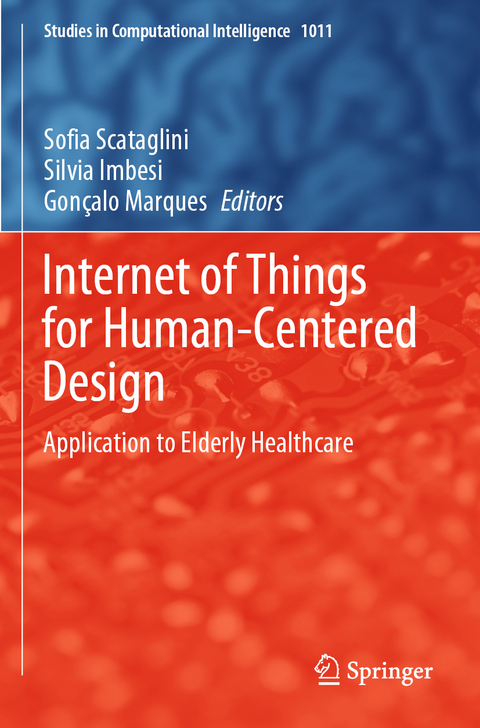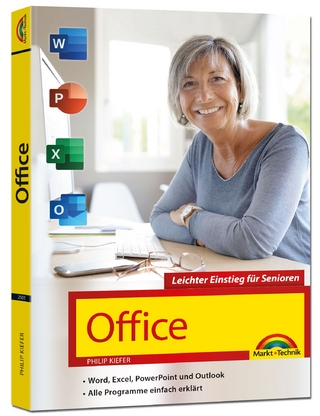
Internet of Things for Human-Centered Design
Springer Verlag, Singapore
978-981-16-8490-6 (ISBN)
This book discusses and analyses the most recent services, products, systems and environments specifically conceived for older users, in order to enhance health, care, well-being and improve their quality of life. This approach is coherent with the percept of AAL or enhanced living environment, looking to the users’ comfort, autonomy, engagement and healthcare. The book describes and analyses aspects of HCD with older users looking to the emerging technologies, products, services, and environments analysed in their actual application in different areas, always concerning the design for the elderly related to the IoT, just as the development of biomonitoring devices, tools for activity recognition and simulation, creation of smart living environments, solutions for their autonomy, assistance and engagement enhancing health, care and wellbeing. The book is intended for researchers, designers, engineers, and practitioners in healthcare to connect academia, stakeholders, and research institutions to foster education, research and innovation.
Sofia Scataglini is a Biomedical Engineer and Visiting Professor at Antwerp University (UA). She holds a Joint PhD in Applied Science between Politecnico di Milano and Belgian Royal Military Academy (RMA). Since 2014, she has been working as a Researcher at RMA and since 2018 at the Belgian Military Hospital Queen Astrid. Sofia Scataglini is a co-chair the Technical Committee (TC) on Digital Human Modeling and Simulation at International Ergonomics Association (IEA). She is also the founder of the Digital Human Modeling by Women group (DHMW), which is dedicated to promoting women researchers around the world. In doing so, she organizes congresses related to Applied Human Factor and Ergonomics, IEA and Digital Human Modelling. She is also an active editor and reviewer of books, journals and scientific grants focusing on sensors, health and care, modelling and simulation, standardization, ergonomics and design. Silvia Imbesi has a master's degree in Architecture and a bachelor's degree in Industrial Design. She is now completing a Ph.D. program in inclusive design within the International Doctorate in Architecture and Urban Planning program (IDAUP) at the Department of Architecture of the University of Ferrara, presenting research on inclusive design for smart devices addressed to older users. Since 2009, Silvia Imbesi has worked as a freelance architect and designer, collaborating with other professionals, companies, industries, and institutions for the development of projects and design research. Starting from 2012, she collaborated with the University of Ferrara as a contract professor and participated in several kinds of research, as a research fellow, regarding user-centered methodologies, inclusive devices related to the IoT, innovative teaching methods, etc. Gonçalo Marques holds a PhD in Computer Science Engineering and is member of the Portuguese Engineering Association (Ordem dos Engenheiros). He is currently working as Assistant Professor lecturing courses on programming, multimedia and database systems. Furthermore, he worked as a Software Engineer in the Innovation and Development unit of Groupe PSA automotive industry from 2016 to 2017 and in the IBM group from 2018 to 2019. His current research interests include Internet of Things, Enhanced Living Environments, machine learning, e-health, telemedicine, medical and healthcare systems, indoor air quality monitoring and assessment, and wireless sensor networks. He has more than 80 publications in international journals and conferences, is a frequent reviewer of journals and international conferences and is also involved in several edited books projects.
Human-centred Design Digital Human Modeling Techniques for Design Products in Elderly.- User-Centred Design Methodologies and Codesign for the Design of Innovative Solutions for Older Users.- An Experience of Co-Design Workshop with Elder Users HCD IoT Service and Product for Improving Lifestyle.- mHealth and/or eHealth Solutions for Ageing with Special Emphasis on Ageing Related Inflammatory.- IoT Enabled Smart Clothing for Monitoring an Ageing Society.- Neurotechnologies for Improving the Quality of Life of Older Adults and Elderly Patients.- Cloud-IoMT-based Activity Monitoring System for Elderly Patient.- Sleeping and Smart Beds in Olders.- IoT-Connected Smart Homes for an Aging Population.- Smart Objects for the Elderly.- Smart Cities, Public Space and Travel Experience for the Elderly.- Interfaces for Smart Systems Addressed to Elderly.- Transforming Transportation for the World’s Ageing Population using IoT, AI.- User Centred Development of Lower Limb Exoskeletons: Considerations on the Use on Elderly.- Hand Tracking and Virtual Reality for Motor and Neurological Rehabilitation.- Gamification for Elderly: Virtual and Robotic Systems.- Haptics in Elderly Adults.
| Erscheinungsdatum | 01.03.2023 |
|---|---|
| Reihe/Serie | Studies in Computational Intelligence |
| Zusatzinfo | 82 Illustrations, color; 13 Illustrations, black and white; XVII, 404 p. 95 illus., 82 illus. in color. |
| Verlagsort | Singapore |
| Sprache | englisch |
| Maße | 155 x 235 mm |
| Themenwelt | Mathematik / Informatik ► Informatik |
| Medizin / Pharmazie ► Gesundheitswesen | |
| Medizin / Pharmazie ► Pflege | |
| Technik ► Elektrotechnik / Energietechnik | |
| Technik ► Nachrichtentechnik | |
| Wirtschaft | |
| ISBN-10 | 981-16-8490-1 / 9811684901 |
| ISBN-13 | 978-981-16-8490-6 / 9789811684906 |
| Zustand | Neuware |
| Informationen gemäß Produktsicherheitsverordnung (GPSR) | |
| Haben Sie eine Frage zum Produkt? |
aus dem Bereich


